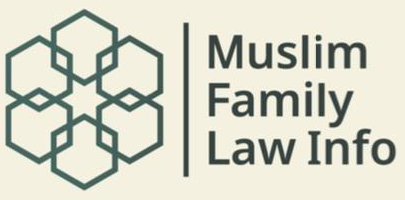Muslim Divorce FAQs
29. What is the ‘Iddah period?
The ‘Iddah is a period of time, sometimes known as a waiting period, during which a woman should not enter into a new marriage contract. A woman begins her ‘Iddah period when she is divorced or widowed.
One reason for this rule is to give time for the couple to consider reconciliation.
Another is to give time for grieving and emotional healing from the breakdown of the relationship.
30. How long is the ‘Iddah for a divorced woman?
After a divorce, the ‘Iddah usually lasts for three menstrual cycles, or three lunar months for those who do not menstruate or are irregular.
For a woman who is pregnant, her ‘Iddah will last until the birth of the baby.
For a woman whose marriage was not consummated before the divorce, there is no ‘Iddah period.
These are different to the ‘Iddah period where a woman’s husband dies. That ‘Iddah period is four months and ten days for all widows except those who are pregnant, where it continued until they give birth.
32. When does the ‘Iddah period begin in the case of a Faskh?
A woman will be instructed by the Shari’ah council or similar body dealing with her Faskh on when the ‘Iddah begins.
34. Are there rules for the ‘Iddah period?
During the ‘iddah, a woman cannot remarry or formally agree to marry another person. She may remain in the matrimonial home for the duration of the ‘iddah if she chooses. Some classical interpretations impose additional restrictions on women during this period, but these are not directly mandated by the Qur’an or authentic hadith.
For widows, for example, the Qur’an states:
“As for those of you who die and leave widows behind, let them observe a waiting period of four months and ten days. When they have reached the end of this period, then you are not accountable for what they decide for themselves in a reasonable manner. And Allah is All-Aware of what you do.” (2:234)
Modern scholarship generally limits the restrictions to refraining from remarriage and encourages modest behaviour as a protective measure, rather than requiring physical seclusion of women.
Whether the ‘iddah arises from divorce or the death of a spouse, women are generally considered free to continue with daily activities, including work, shopping, and other necessary engagements, provided they maintain the principles of modest behavior outlined in Islamic guidance.
35. What are the financial rights of a wife after divorce?
This depends on the contract(s) you have entered.
If you have a legally binding marriage, your financial rights are contained within the Matrimonial Causes Act and you can agree a financial settlement between you. If you entered into a pre- or post-nuptial agreement, this would impact on the financial settlement. The financial settlement is part of the divorce process and can be achieved using mediators or through the courts. See Legal Divorce FAQs for more details.
Where you are in a non-legally binding Nikah only marriage, any rights will depend on the terms of the Nikah contract and the application of general principles of Islamic law. However, unless your agreements are contained in a legally binding cohabitation agreement, there will be no way to enforce the agreement and the parties must voluntarily abide by it.
Maintenance payment to the wife is specifically mentioned in the Quran:
“And for divorced women, maintenance (should be provided) on reasonable (scale). This is a duty on Al-Muttaqûn” (2:241)
There is no set amount and maintenance payments will depend on other circumstances including affordability.
The Quran emphasises generosity, compassion, and responsibility toward women even in situations where strict legal obligations are lighter. It sets the tone that divorce, while permitted, should be handled with dignity and fairness.
36. What is the Islamic legal position on financial provision for children?
In Islamic law, parents share responsibility for the care and wellbeing of their children. A key element of this responsibility is financial support, known in Arabic as nafaqah. Traditionally, this obligation rests on the father, who is expected to contribute towards his children’s essential needs including food, clothing, housing, and related expenses, at a standard proportionate to his financial capacity and adequate for the child’s welfare (Qur’an 2:233; 65:7).
This duty applies regardless of whether the parents are married, separated, or divorced, and it continues for as long as the children are unable to support themselves. In classical jurisprudence, this usually extended through childhood and, in some interpretations, further if children were studying or otherwise dependent.
The principle behind nafaqah reflects the broader Islamic emphasis on justice, compassion, and shared responsibility within the family unit, ensuring that children are not disadvantaged by the marital status of their parents.









